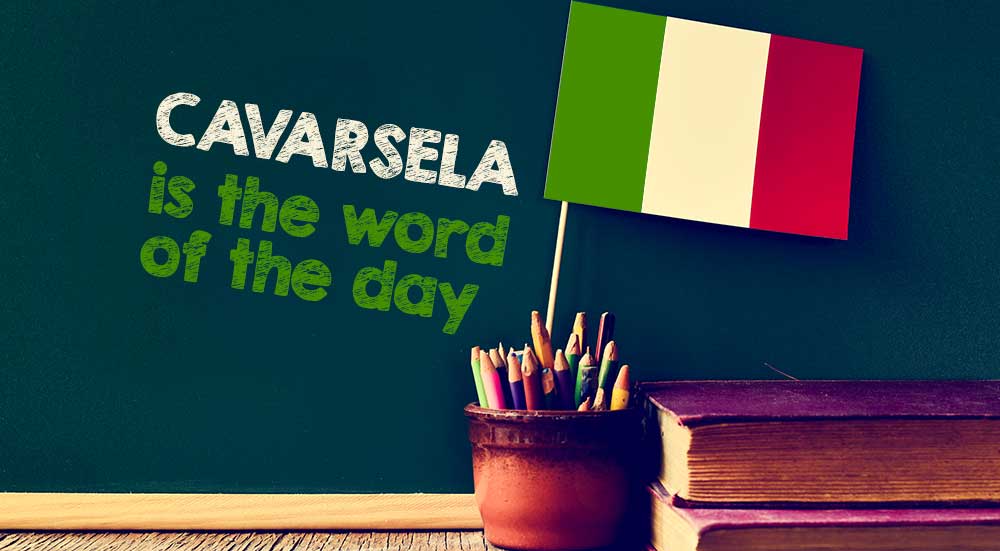Cavarsela (cah-vahr-sai-lah)– is a delightful Italian expression, brimming with nuances and subtle connotations. Its strictest meaning is about making it through tough circumstances, not necessarily unscathed, but certainly undeterred. In English, we can translate it with “getting away with,” “getting by,” or “managing.”
But before delving any deeper into its meaning, we should say a thing or two about the way cavarsela is formed or, to say it with linguists, about its morphology. Cavarsela is a reflexive verb composed of the verb “cavare” and the pronouns “si” (which becomes “se” when followed by another pronoun) and “la.” A closer look at its etymology brings to light its literal meaning: “cavare” translates to “extract” or “remove,” and when combined with the reflexive pronouns, the term broadly hints at the act of extracting or removing oneself from a given situation, usually a difficult one. For instance, let’s say you took a tumble while riding your bike: potentially, it could have been very dangerous but tutto considerato, te la sei cavata solo con qualche graffio (“all in all, you got away with only a couple of scraps”).

Cavarmela often dips its toes into the realm of cunning, resourcefulness, and the ability to manage your affairs well: hai dovuto fare tutto da solo, ma te la sei cavata benissimo (“you had to do all by yourself but you managed beautifully”).
But cavarsela is no one-trick pony: it can also convey the idea of skirting difficulties, especially by employing wit or shrewdness.” The very common expression cavarsela bene, or “getting off lightly,” illustrates this perfectly.
Last but not least, cavarsela can be used to say you manage something reasonably well. For instance, If you’re a non-native Italian speaker who has managed to get a grasp of the intricacies of the language, you might say, con l’Italiano me la cavo, “I manage fairly well with Italian.”





























